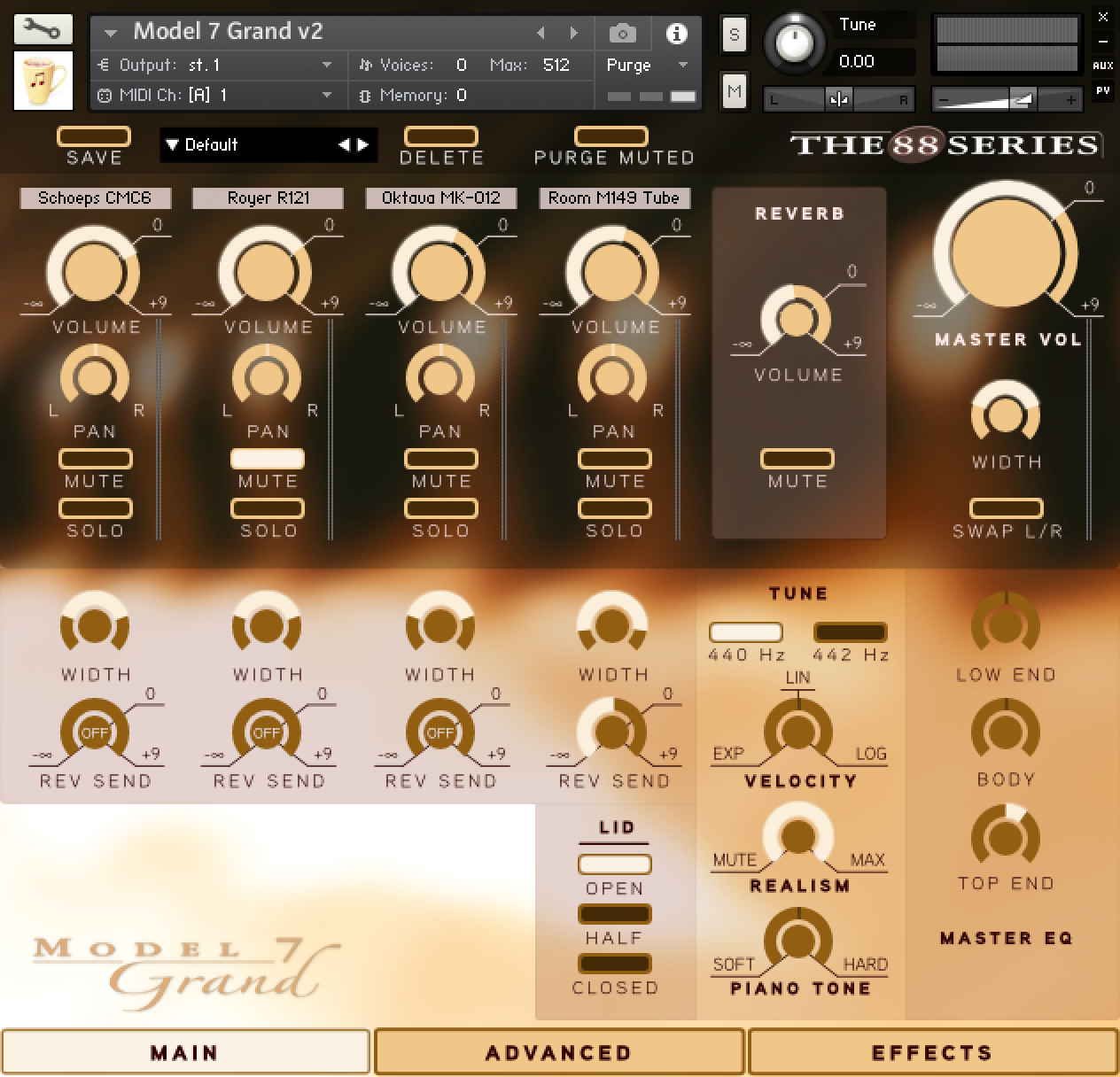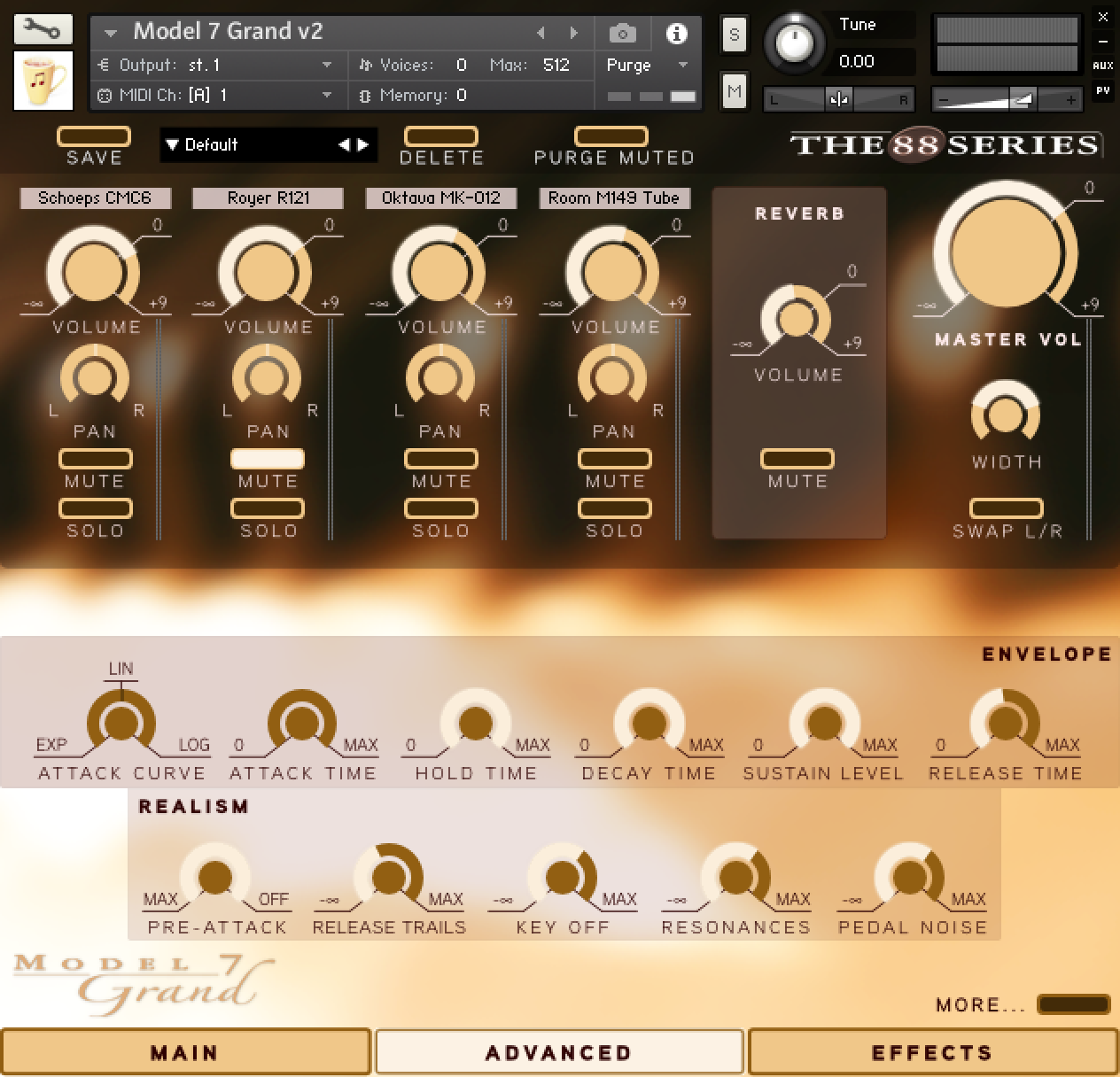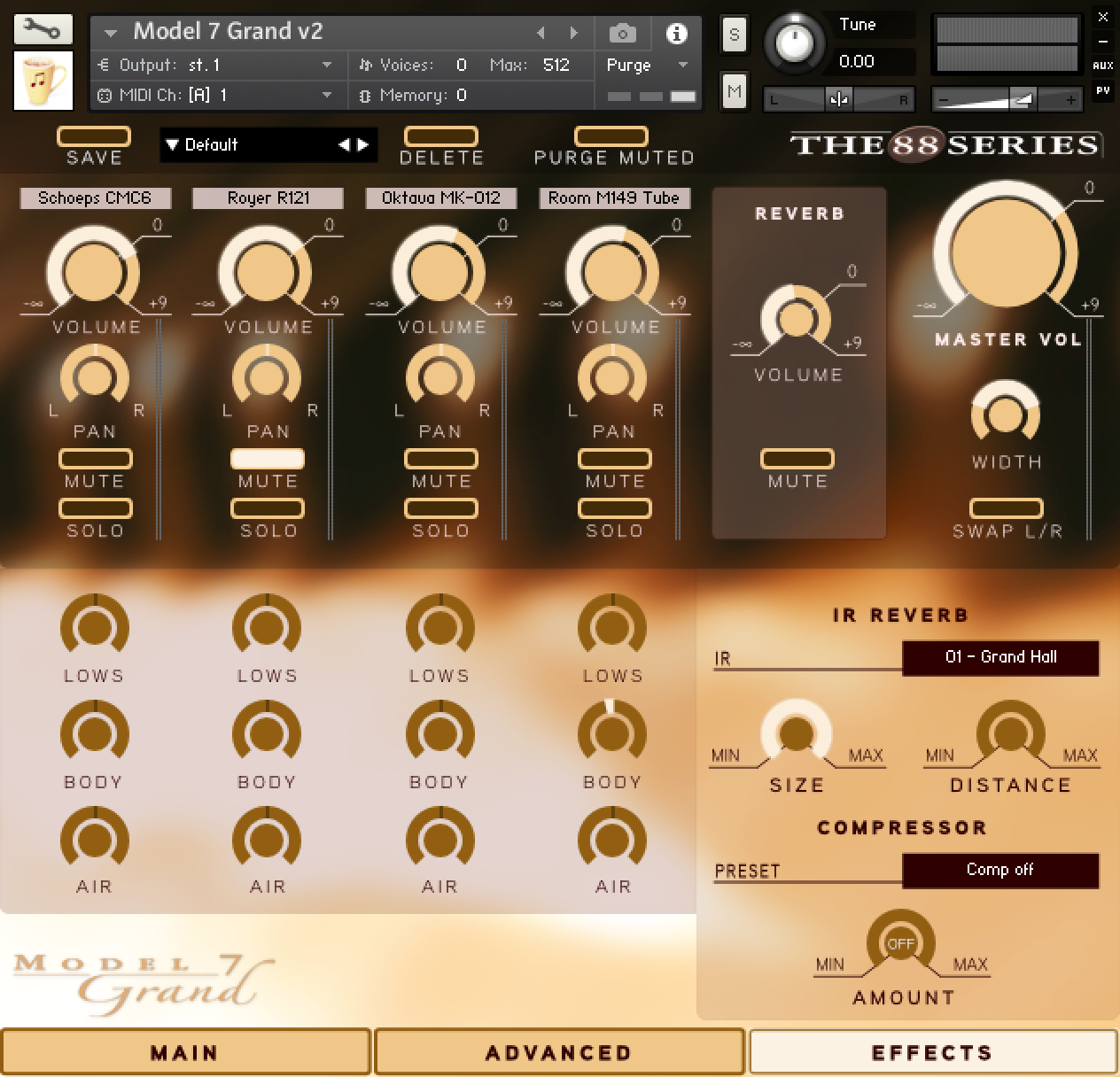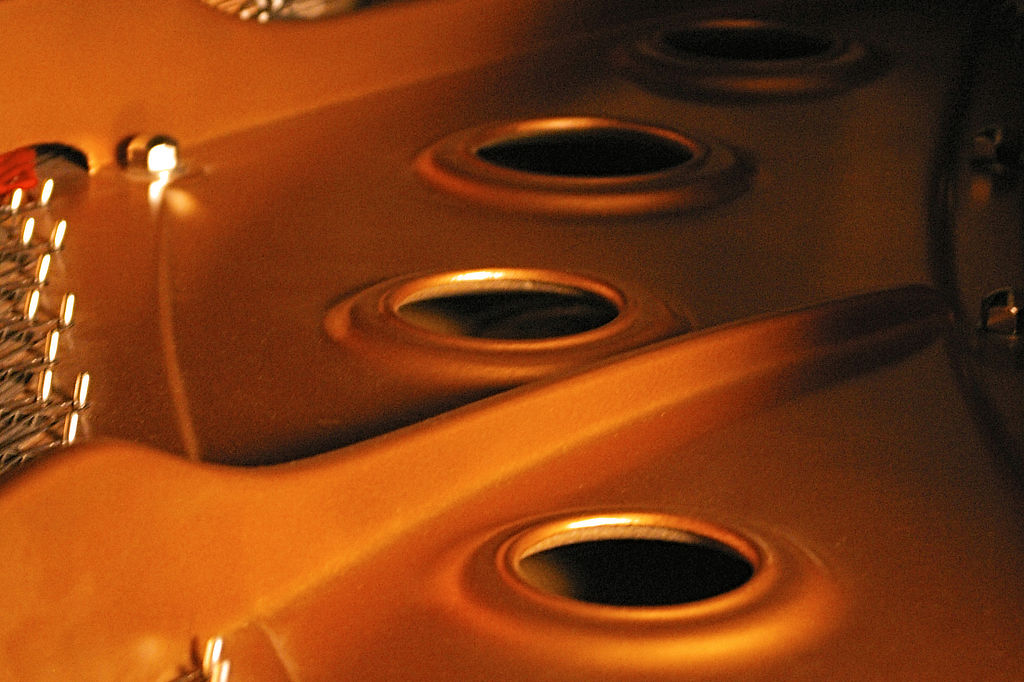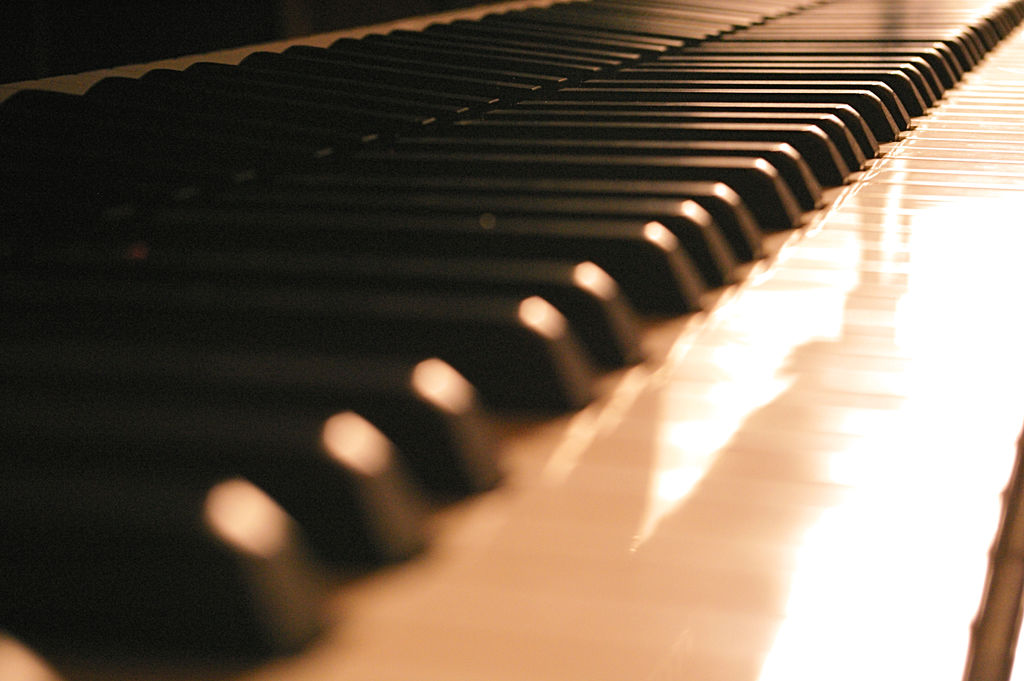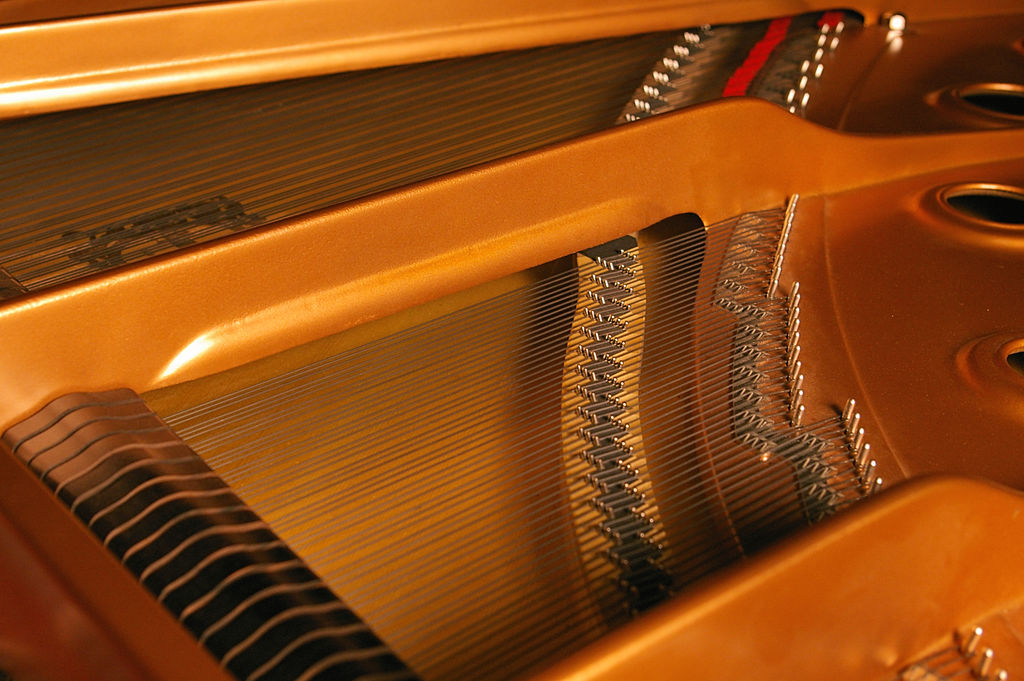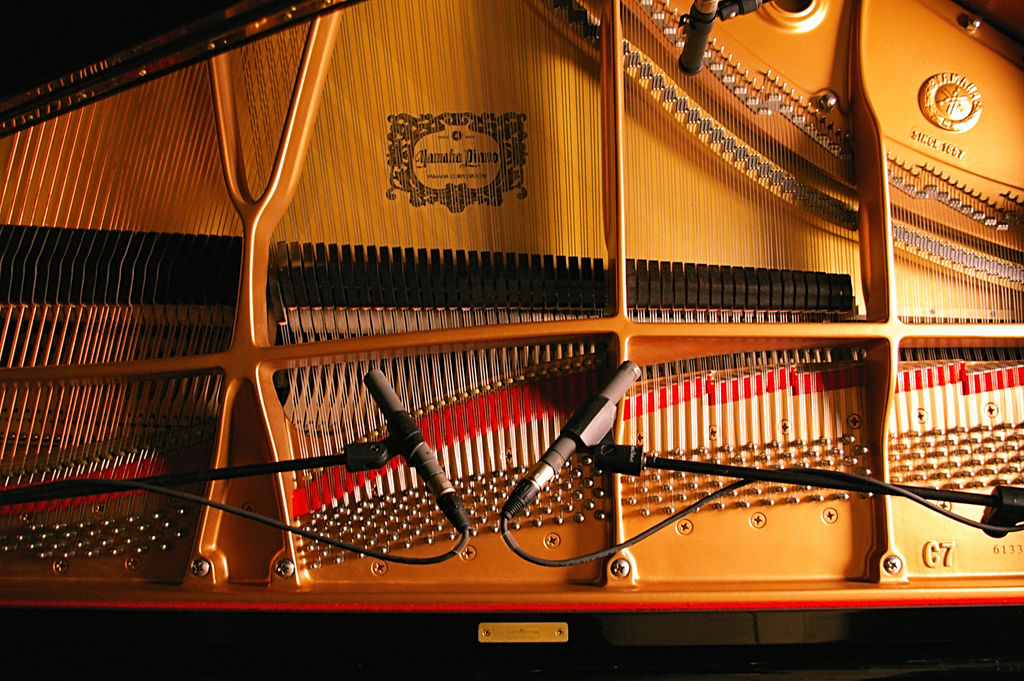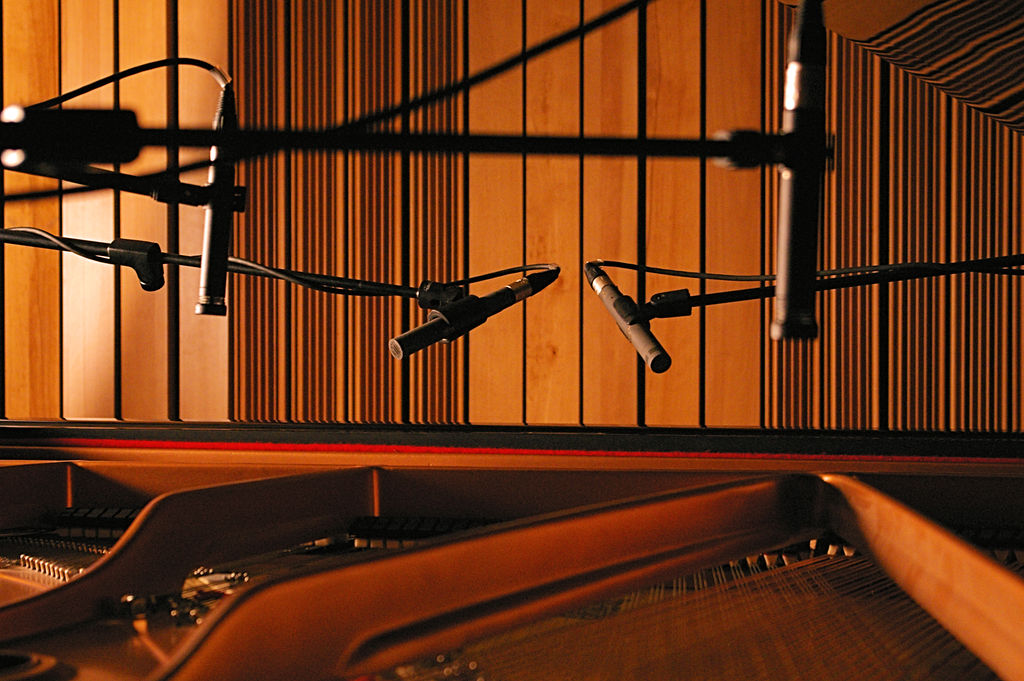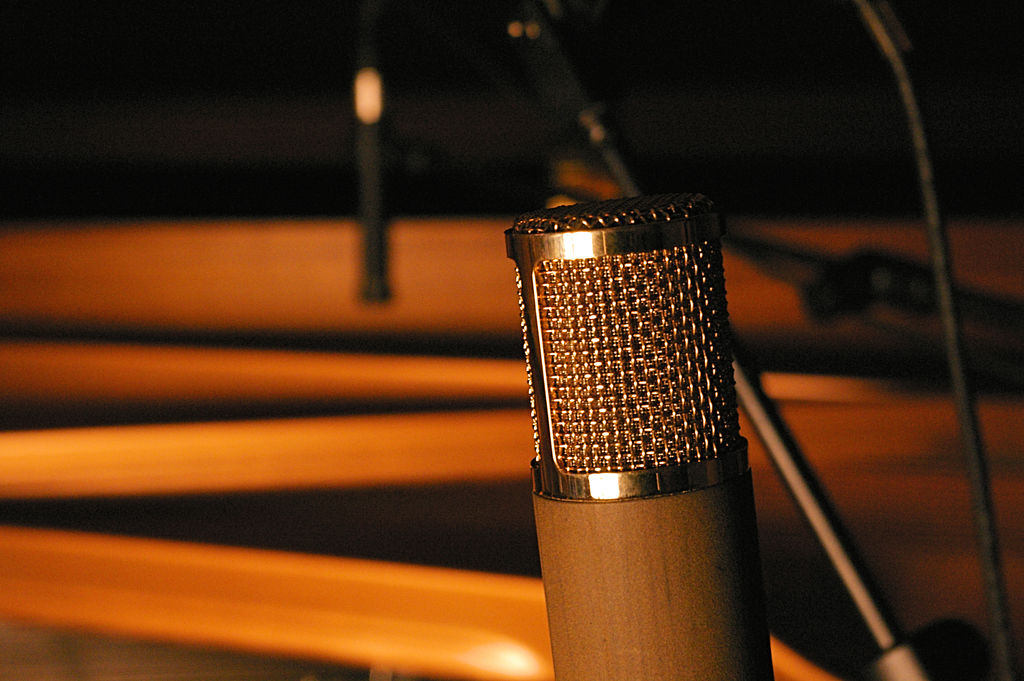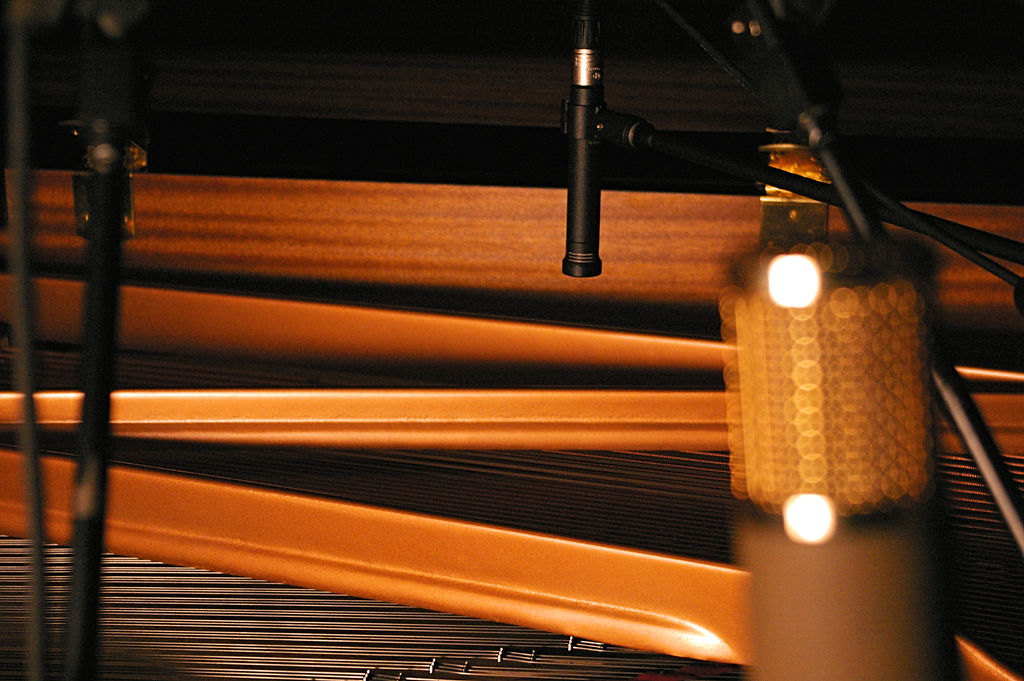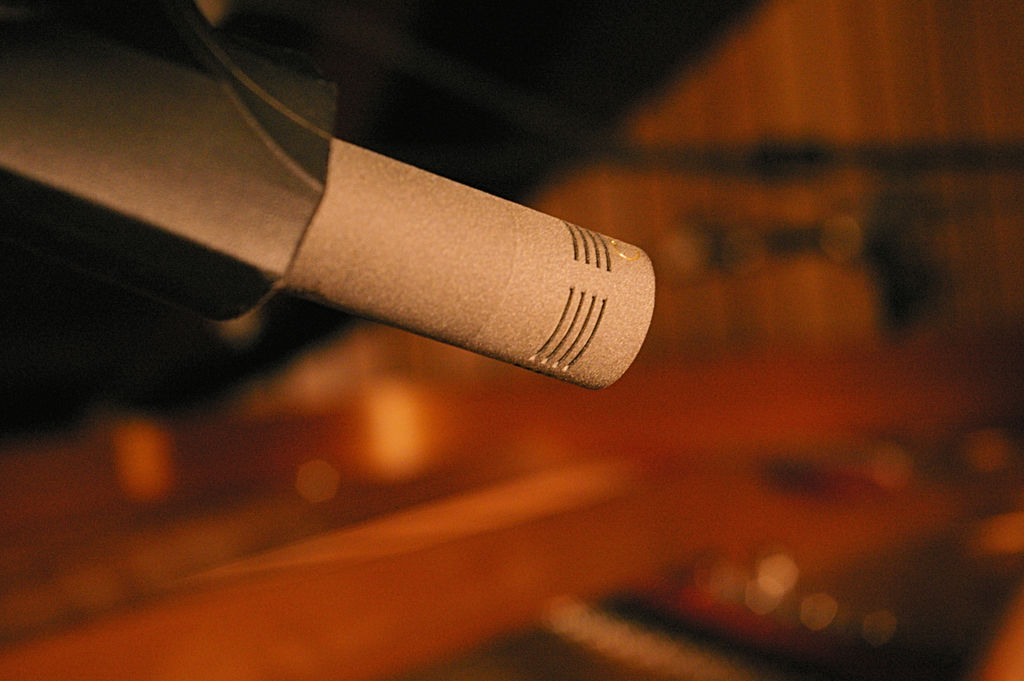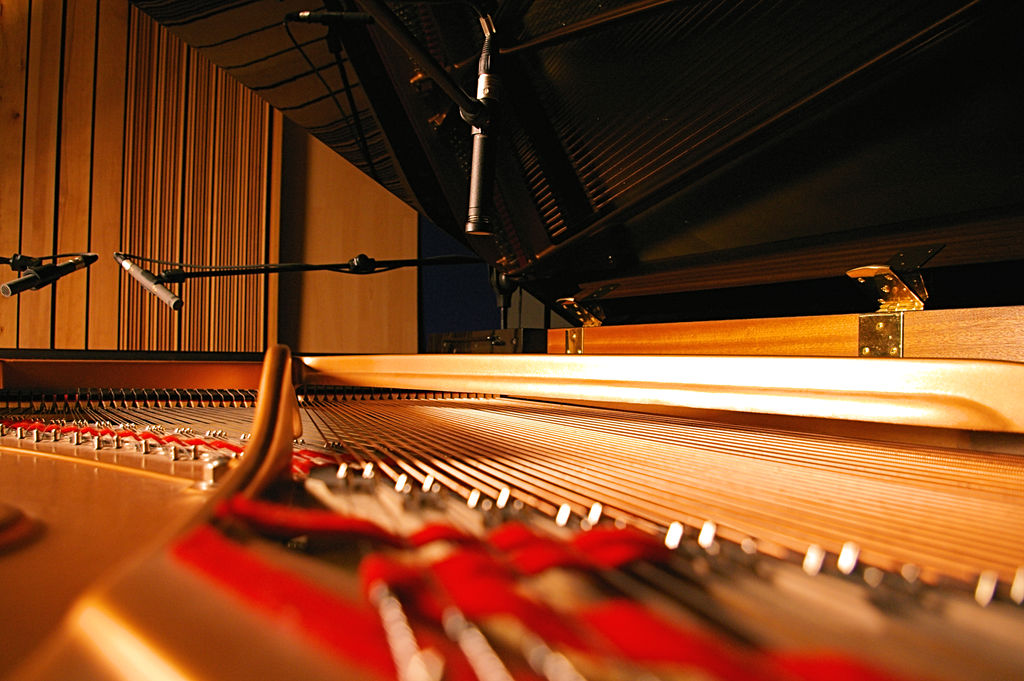The 88 Series Pianos - Model 7 v2
/Video walk-through
Audio demos
All sounds for these demos are taken at the direct output from Kontakt and just Normalized to -1dB.
NEW - Version 2.0 of The 88 Series Pianos engine is out
V. 2 represents a new version of our engine. Here are the changes since v. 1.0 (include v. 1.5 too):
BUG-FIXING
Fixed a bug in Mute/Solo logic
Fixed bugs in Release, Resonances and Release Trails samples playback
Fixed some graphics bugs
Other minor bug-fixes
NEW FEATURES
Added Previous/Next Preset buttons
Added support for continuous Sustain Pedal (Half-Pedaling)
Added Advanced Settings page with Key Level Trimmer
Added Credits page
New GUI
IMPROVEMENTS
Vastly improved .nki program for Model D Grand
Dramatically improved CPU and Voice management
Improvements in many small aspects of the pianos
Top Model
The Model 7 grand piano was sampled from a Yamaha C7 grand coda piano. Our first idea was to sample a CFIII, but when we went to the rental-house we totally fell in love with this one and chose it. This particular piano has been in constant use since the '80s in two highly praised concert halls in Torino (Italy) and has been played by artists like Michel Petrucciani and Chick Corea along the years. This piano is under constant maintenance by highly-skilled italian technicians. We sampled this little-big monster of a piano in a medium-size hall surrounded by a smorgasbord of microphones.
Macro-phones
We didn't settle for a single pair or a limited selection of microphones from the start, we wanted to make sure that the piano, after the sampling and editing process had the best chances to preserve its soul, something which can be hard to achieve. For this very reason, we used many more microphones than the ones we ended up with.
Choice of Microphones
These are the Mics we carefully selected after multiple playing and listening sessions on the edited samples:
a Schoeps CMC6 with MK4 cardiod capsules matched-pair placed at the player's position
a Royer 121 matched-pair placed inside the open-lid but at a healthy distance from the soundboard to pickup both the direct sound and the reflections from the lid thanks to their figure-8 patterns
a modded Oktava MK-012 spaced matched-pair, placed right above the strings
a pair of matched Neumann M149 mics to pick up the sound from a medium distance
These microphones, by themselves or combined, give you the widest possible gamut of tonal colors you might need from a top-notch concert piano. To preserve tonal balance, we even carefully phase-aligned all of the microphones.
Mixing a-la-carte
One might think that having four different choices and combinations of mics plus the reverb would make finding the perfect balance impossible.
It is not.
This Instrument, we believe, easily opens up many different sonic worlds by using its on-board mixer. This tool is focused on easy-to-get results with a few tailored controls:
Volume
Panpot, places the sound in a specific direction
Mute and Solo
Width, controls the width of the stereo signals
Reverb Send, amount of signal for each microphone that gets processed by the on-board IR Reverb
Master effects are a 3-band EQ with cherry-picked frequency centers, a Preset Compressor & Tape Emulation and the IR Reverb
On each single channel you might use a simple but very effective 3-band EQ
Optimal resources management
Dealing with a piano Instrument featuring four microphones at the same time can bring an heavy load on system resources. The amount of playback voices for the CPU and Disk Streaming, preload in RAM and load times could suffer.
A click on Purge Muted simply removes from memory all muted channels, not anymore weighing on RAM, CPU and streaming resources.
Simplicity, with depth
Our approach to sampled Instruments is to let the musician in you fly free of any technical burden. Fast, full satisfaction is guaranteed: you just need to play, the fastest possible learning-curve is always kept as a reference when designing our Instruments. At the same time, when there's that techie-need to tweak and fine-tune, our multi-layer user interfaces allow for it, giving you the best of both worlds.
Advanced sampling and scripting
We believe the real break-through in these ages is creating advanced, high-quality Instruments which don't require you to earn a master in computer programming before you start making music with them. Making matters easy for the musician always means introducing more and more layers of complication for us developers. First of all we are musicians, and we don't want you to end up putting our products on a virtual shelf and forget about them because they are too hard to learn and use.
Preset-galore
Our effects section doesn't require a degree in audio-engineering to make the best out of it.
This is our job.
Just select one of the 34 main Presets and fine tune it using a few carefully selected parameters.
The Compressor & Tape Emulation section, usually hard to grasp for the inexpert in audio tweaking feature no less than 22 + 22 (for when using a single Mic only, marked with a + sign) presets with a simple Amount knob to rule it to your taste.
The Reverb section, so critical for acoustic pianos in particular, features an in-house developed collection of 101 carefully selected high quality Impulse Responses coming from both real spaces and revered vintage and contemporary studio hardware.
Key Level Trimming
Version 1.5 added MIDI key-based level trimming: this feature allows you to further customize the dynamic response of the piano based on your keyboard action and listening environment
89.00 USD
(list price 129.00 USD)
DISCLAIMERS:
- this Instrument requires the FULL RETAIL VERSION OF KONTAKT 5.5.2 or better, the free Kontakt Player will run this Instrument only in demo mode for a few minutes.
- this Instrument may be acquired only in downloadable format, download size is about 8.7 Gigabyte, so expect longer download times on slower connections
Features
9.12 GB (lossless compressed) library size, 6640 samples
4 microphone sets: Schoeps CMC6 MK4s, Royer 121 ribbons, modded Oktava MK-012s and Neumann M149 stereo room set
11 sustaining dynamic layers, chromatically sampled
8 release trails layers, chromatically sampled
independently controllable sustain-pedal resonances
key-release noise for added authenticity
sustain-pedal down and up noise layers
sampled with Millennia, Neve, SSL and Focusrite preamps fed direct into Apogee converters
all of the details of the piano recreated through the use of our custom advanced scripting
recorded at 24 bit / 96 KHz, released at 24 bit / 44.1 KHz
easy-to-use mixer for extreme sound-mangling
Kontakt engine features
custom User Interface
velocity curve management
piano tone control, makes the piano sound softer or harder under your fingers
custom touch response control: set at minimum you'll get the full sound of the piano with added latency (good for mixing), at higher levels cuts more and more into the piano pre-attack portion allowing for very low perceived latency when needed (good for tracking and live playing)
fine-tuned three-band EQ for each channel
many under the hood techniques to make the piano true to the original (life-like re-pedaling, release trails attenuation, intelligent attenuation of each single dynamic layer for maximum dynamic response...)
master realism control and specific control over release trails, key off, resonances and pedal noise levels
envelope controls
101 custom, high quality IR reverbs
22 (+ 22) compressor + tape presets
34 factory presets + user-savable presets
works as stand-alone, AAX, RTAS, AU and VST for Mac and PC
Requirements
4 GB Ram (more if in need of loading more sample sets)
Core2Duo or equivalent Mac or PC
Kontakt Retail Version: v. 5.4.3 or newer
MIDI Keyboard


